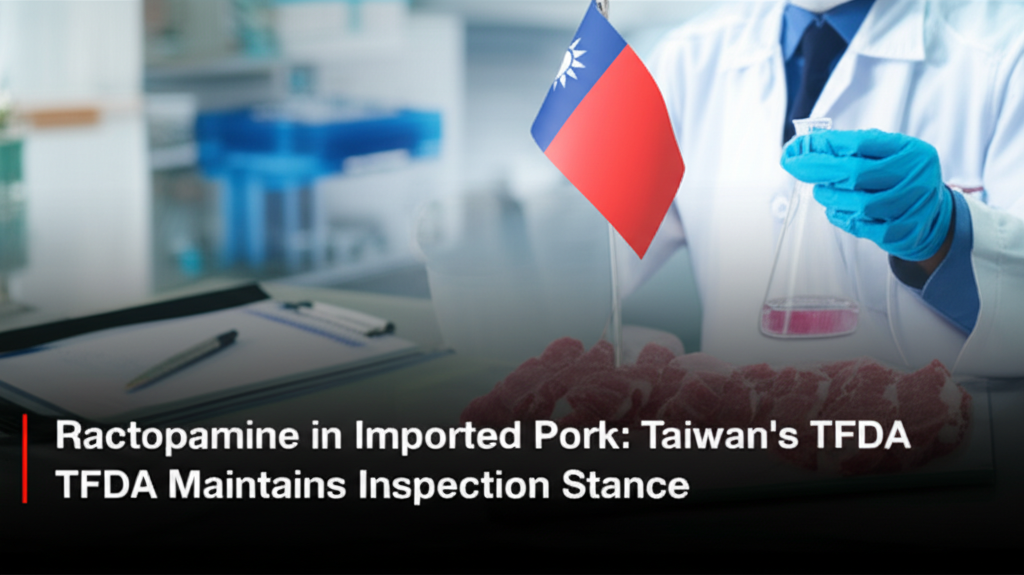Ractopamine in Imported Pork: Taiwan's TFDA Maintains Inspection Stance
Following a recent detection, Taiwan's food safety agency stands firm on existing pork import regulations.

Taipei, Taiwan – The Taiwan Food and Drug Administration (TFDA) has announced it will maintain its current pork import inspection procedures, despite the first-time detection of ractopamine in imported pork since the ban was lifted in 2021. This decision comes after a recent shipment tested positive for the controversial additive.
Imported pork will continue to undergo batch inspections ranging from 2 to 10 percent, according to the TFDA. This represents a gradual relaxation of controls, having started at 100 percent in 2021 and progressing to 20-50 percent in 2023, following repeated tests demonstrating the absence of ractopamine residue.
The TFDA's pork monitoring dashboard revealed that a 22.99-metric-ton shipment from Australia, arriving on April 29, contained 0.001 parts per million (ppm) of ractopamine. This level is significantly below Taiwan's legal threshold.
The shipment encompassed various pork parts, including pig feet, intestines, jowls, skin, and liver connective tissue. The detected ractopamine level adheres to Taiwan's residue limits: 0.01 ppm for meat and edible parts, and 0.04 ppm for organs such as liver and kidneys.
The incident represents the first instance of ractopamine detection in imported pork since the market opened, raising potential concerns about the issue spreading beyond U.S. pork to encompass other sources.
In response, the TFDA reiterated its commitment to the four key principles governing inspections: food safety, scientific analysis, international standards, and market surveillance, all aimed at safeguarding public health in Taiwan.
Other Versions
Ractopamina en carne de cerdo importada: La TFDA de Taiwán mantiene su postura inspectora
Ractopamine dans le porc importé : La TFDA de Taiwan maintient sa position d'inspection
Ractopamine dalam Daging Babi Impor: TFDA Taiwan Mempertahankan Sikap Inspeksi
Ractopamina nella carne di maiale importata: La TFDA di Taiwan mantiene la sua posizione ispettiva
輸入豚肉中のラクトパミン:台湾TFDAは検査姿勢を維持
수입 돼지고기의 락토파민: 대만 TFDA, 검사 입장 유지
Ractopamine sa Inangkat na Baboy: Paninindigan ng TFDA ng Taiwan ang Inspeksyon
Рактопамин в импортной свинине: TFDA Тайваня сохраняет позицию инспекции
สาร Ractopamine ในหมูนำเข้า: TFDA ของไต้หวันยังคงยืนยันจุดยืนการตรวจสอบ
Ractopamine trong thịt heo nhập khẩu: TFDA Đài Loan duy trì lập trường kiểm tra

